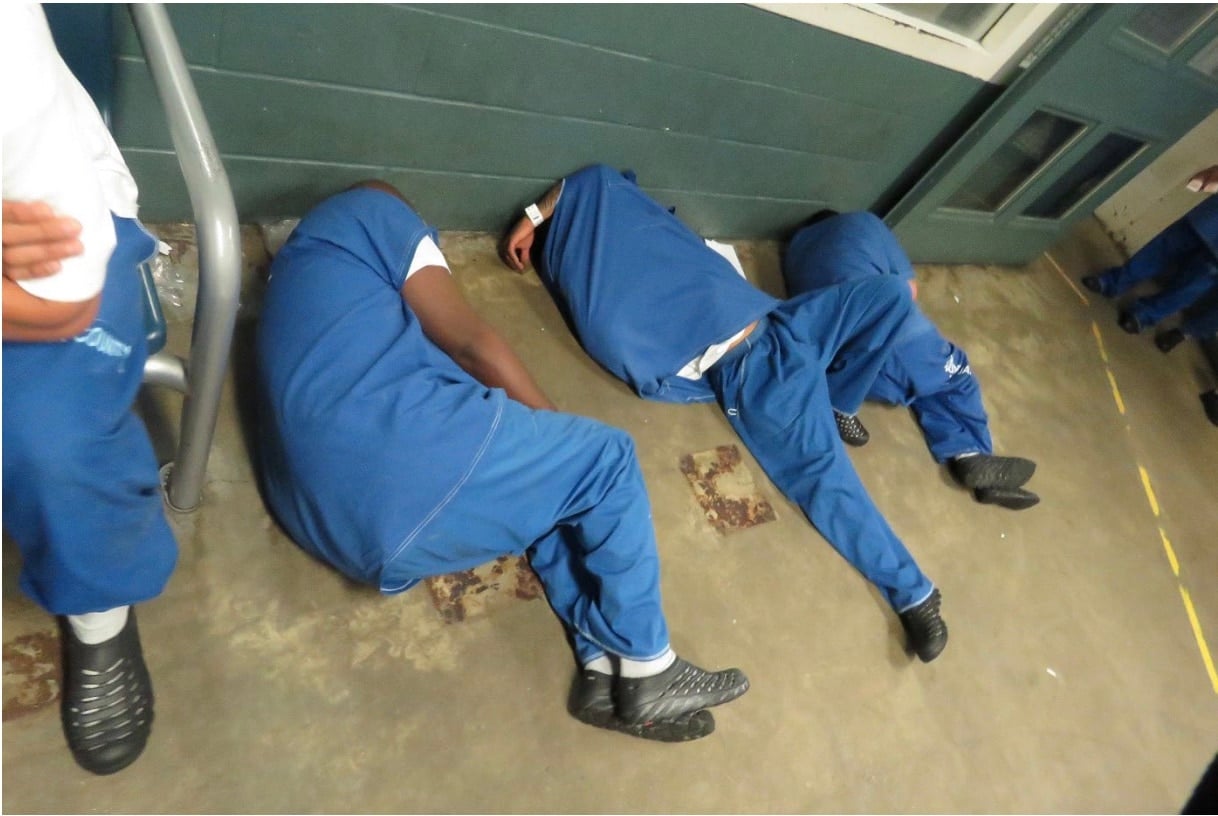LOS ANGELES (CN) — Los Angeles County agreed with the American Civil Liberties Union to resolve the recent inhumane conditions at the intake center for the county jails where inmates have been left stranded for days in an overcrowded, unhygienic space while waiting for permanent housing in the jail.
Attorneys for the county and the ACLU said at a hearing Thursday in federal court in Los Angeles that they would file a stipulated temporary restraining order to ensure that inmates won't be held for more than 24 hours at the Inmate Reception Center.
The ACLU on Sept. 8 asked a federal judge to order the county to address the current inhumane conditions at the intake center through a filing in a lawsuit that dates back to the Gerald Ford administration over the deplorable circumstances in which inmates were held at the county jail.
According to the ACLU, inmates with severe mental illness are left chained to chairs and benches for days at a time, other inmates are sleeping on the floor for days and people are defecating in trash cans and urinating in empty juice boxes or on the floor. In April, a man was found unresponsive at the intake center and died despite emergency aid, according to the ACLU, and in June, a 72-year-old man held at IRC for two days without medical evaluation, collapsed and died.
The county in response has said the ACLU is largely correct that conditions at the intake center have deteriorated in recent months. The problem, according to the county, is that a pandemic measure that allowed non-violent offenders to be released without posting bail while awaiting trial has lapsed and that has caused an influx of inmates that have been remanded to the jail by the courts. Moreover, many of these inmates have serious mental-health problems that require specialized housing which is in short supply.
About 45% of the roughly 13,000 inmates in the LA County jail system suffer from some sort of mental-health issue, making it the largest de facto mental health institution in the U.S., Robert Dugdale, a lawyer representing the county said at the hearing.
The lack of funding in LA County to accommodate people who suffer from serious mental illness, either within the jail system or in community-based supportive housing, everyone agreed is at the root of the problem.
Whereas the county committed years ago to a “Care First, Jail Last” diversion approach to the treatment of people with mental illness who become entangled in the criminal legal system and has commissioned reports and studies and has held countless hearings, it so far hasn't done enough to implement changes, according to the ACLU.
"County leaders fail to put their money where their mouths are, and fund community alternatives to incarceration at a level necessary to meaningfully alleviate the crush of people with acute mental illness in the jail," the ACLU said in its request for a temporary restraining order.
U.S. District Judge Dean Pregerson agreed that funding is a key concern and expressed his concern that the LA County Sheriff's Department might be releasing inmates well before they have served their sentence as a "safety valve" in order to create space in the jails, sometimes after they have served only one week of a 90-day sentence.
"If there's no adequate funding, this problem is going to get worse and worse and becomes a public safety issue," Pregerson said.
Subscribe to Closing Arguments
Sign up for new weekly newsletter Closing Arguments to get the latest about ongoing trials, major litigation and hot cases and rulings in courthouses around the U.S. and the world.








